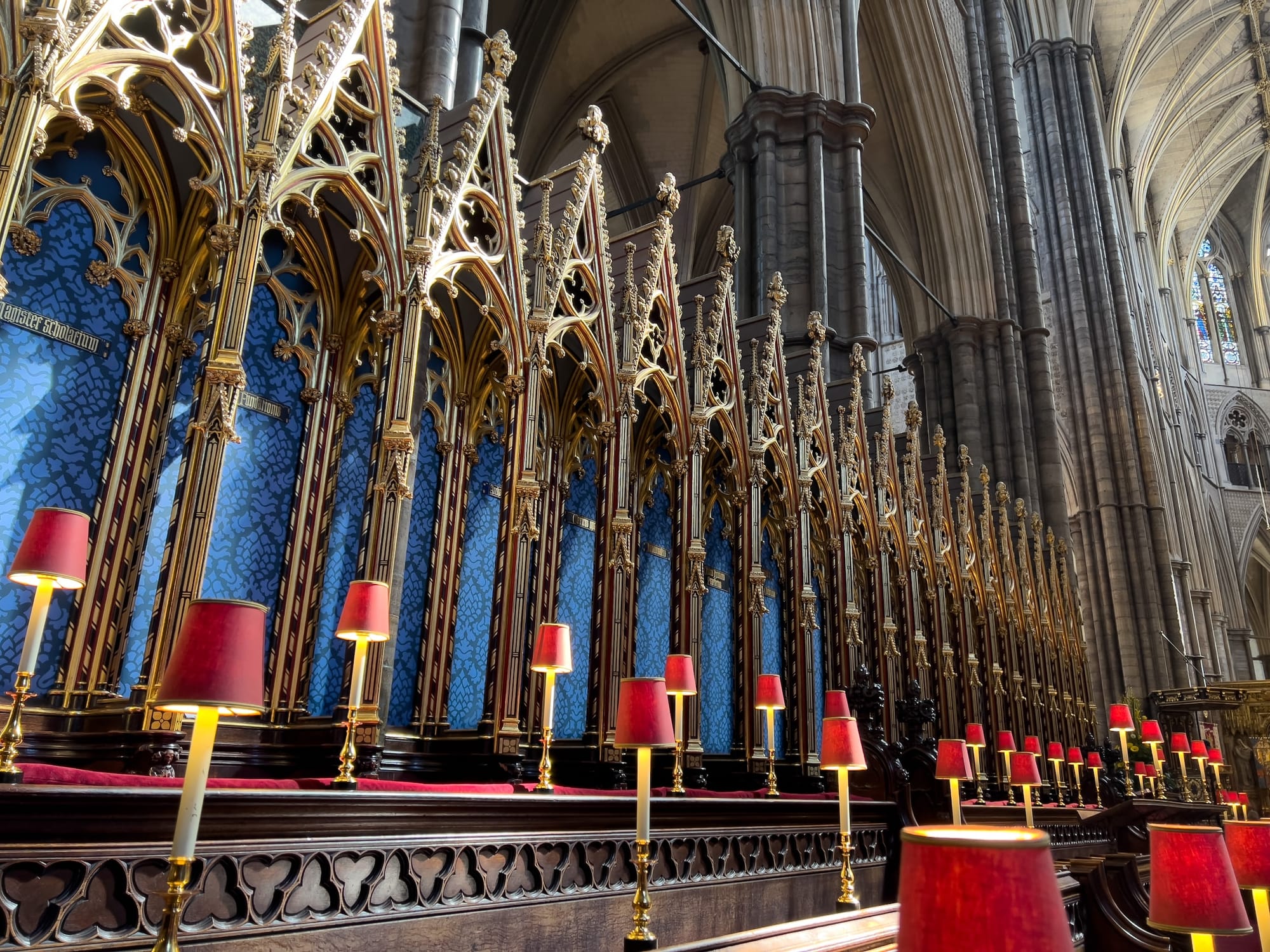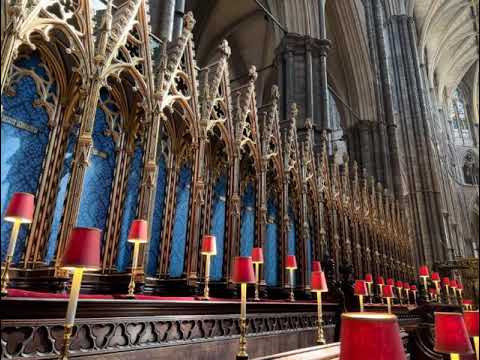The Coronation Oath as it Relates to Constitutional Law

An audio version of this article can be played here:
...and the full Youtube URL:
https://www.youtube.com/watch?v=6KiSKPUpHrc
The coronation oath is an important aspect of our Constitutional arrangements as it is the promise of the monarch to govern according to the rule of Law and the Constitution. It is also, in a sense, an acknowledgement of his limited power under that constitutional law that binds him. The legitimacy of his position remains for the time that he acts within the constitutional law and limitations placed upon him. The Head of State is our first among equals and is the most Senior public servant.
The pledge of King John within the Great Charter of 1215, that the Monarch is (and therefore all successive governments are) to be bound by these constraints, is set out explicitly in Article 61; that is the promise within our constitutional law.
The laws and customs (being the Common Law) is the law of the people as defined by theirconsciences through Trial by Jury in Courts of Conscience. This law is distinct from statute law - that which was made by the King (prior to Parliament) and later by Parliament itself. It is this law that the Monarch, under our constitution, promises to uphold. This is outlined beautifully by Lysander Spooner:
These are the same laws and customs which were called by the general name of ’the law of the land’, or ‘the common law’, and with some slight additions, were embodied in Magna Carta. This oath not only forbid the king to enact any statutes contrary to the common law, but it proves that his statutes could be of no authority over the consciences of a jury since... it was one part of this very common law itself (that is, of the ancient “laws, customs and liberties” mentioned in the oath) that juries should judge of all questions that came before them, according to their own consciences independently of the legislation of the king.
Lysander Spooner, An essay ‘Trial by Jury’ 1852
The 1215 Magna Carta (Great Charter) is considered the embodiment of the Law of the Land or Common Law. This is demonstrated all through texts in our history of law and also by the 1297 ‘Confirmatio Cartarum’ statute issued by Edward 1st.
So the form of all coronation oaths is to uphold this ‘Law of the Land’ or Common Law as later enshrined in the Great Charter and there appears to be no change in this form of the oath prior to 1688.
The earliest actual example of oath texts that we have is Edward II, and because of this we can neither claim for certain that the inclusion of the promise to govern according to the laws and customs of the people was new at this point, nor can we claim for certain that this was always the custom - but there is considerable likelihood that it was always there from the times of William the Conqueror, shown by a considerable list of scholars writing to this effect, including, among others, Kelham, Hale, Crabbe and Echard. The best summary of these writings iscontained in section 6 of Chapter 3 of Lysander Spooner’s Essay ‘Trial by Jury’ 1852, a pdf of which is made available in the Resources section of www.CommonLawConstitution.org.
Furthermore, as mentioned above, there appears to have been a custom that the Monarchs reinforced their desire to govern according to the Law of the Land (the principles later expressed in the Great Charter) by issuing a ‘statement’ or ‘manifesto’. Edward the first’s 1297 statutory ‘Magna Carta’ is an example of this, in which his concession...
...That the Charter of Liberties and the Charter of the Forest... shall be kept in every point, without breach, ...and that our justices, sheriffs, mayors and other ministers which under us have the laws of the land to guide, shall allow the said charters pleaded before them in judgement, in all their points, that is, to wit, the Great Charter as the Common Law, and the Charter of the Forest for the wealth of the realm. And we will that if judgement be given from henceforth, contrary to the points of the charters aforesaid, by the justices, or by any other, our ministers that hold plea before them against the points of the charters, it shall be undone, and holden for naught.
25 Edward I, ch. 1 & 2 (1297)
(Emphasis added.)
The Barons, when later holding John to account in 1215, desired of him...
...that the laws and liberties of King Edward [the Confessor] with other privileges granted to the kingdom and church of England, might be confirmed as they were contained in the charters of Henry the first, further alleging, that at the time of his absolution, he promised by his oath to observe these very laws and liberties.
Echard’s History of England, p. 105-6
In Hale’s History of the Common Law, he says...
Yet the English were very zealous for them [the laws of Edward the Confessor/Common Law] no less or otherwise than they are at this time for the Great Charter; insomuch that they were never satisfied till the said laws were reinforced, and mingled, for the most part, with the Coronation Oath of King William I, and some of his successors.
1 Hale’s History of Common Law, 157
It is important to state that, although the authority of the constitution does not emanate from statute law, many of these important statutes of the Norman period demonstrate the unequivocal intention of the monarchs to reinforce the authority of the laws of Edward the Confessor as our Constitutional Law and the Law of the Land, as laid down later in the Great Charter of 1215.
It would be no surprise, therefore, that though we don’t have the oath texts prior to Edward II, it is quite clear from both statutes and scholarly writings that this must have been their intention to do so and that these earlier oaths would have likely contained similar texts expressing the same points in substance.
In 1688, the Monarch was forced to adopt a changed oath that contained a text that required the Monarch to govern ‘according to the statutes in parliament agreed on, and the laws and customs of the same.’ This was introduced by an act of Parliament - an attempt on the part of the government itself to alter the constitutional arrangements in which it, itself, sits. The 1688 statutory coronation oath act along with the 1689 Bill of Rights represents, on the part of Parliament, the most egregious unlawful attempt to gain power, leading ultimately to the shift to a distorted rule of law in which the monarch was disenfranchised as the defender of the people’s liberties and as the highest public servant. The Coronation Oath Act purports to elevate statute as authority and subjugate the Monarch. It is not constitutionally correct to elevate parliament as a higher authority than the Head of State. All of these actions at the time were acts of treason and the Bill of Rights, though expressing constitutional ideas, contradicts itself.
It is worth reading Kenn d’Oudney’s essay, The Tragedy and Treason of the 1689 ‘Bill of Rights’: https://www.democracydefined.org/essays/ THE_TRAGEDY_AND_TREASON_OF_THE_1689_BILL_OF_RIGHTS.pdf
Interestingly, some monarchs since 1688 have left out the controversial ‘according to statutes in parliament agreed on’ including that of Elizabeth II, making her oath constitutionally correct as she promised to govern according to the ancient law of the land. Sadly Elizabeth did not adhere to this promise as demonstrated by the attempt to give away the sovereignty of the nation through the Treaty of Nice and the giving of assent to other acts of Parliament out of alignment with our Constitution.
It is critical and plain to see that, given all of the above, King Charles’ oath text must not deviate from the original and central point that he must agree to govern according to the ancient Customs and Law of the Land (the Common Law) as this upholds the sovereignty of the people in their right to Trial by Jury and their right to continue to judge independently of government statute.
Charles’ former alignment and continued support of foreign influences and power that would contravene our Constitutional Law and the liberties of the people is a serious issue. Hence this is why we have called for a Royal Retraction and a reassertion of his desire to govern according to the Common Law. This would simply be a repetition of what was being done historically by our earlier Kings.
Although certainly interesting, at this stage, I do not subscribe to any concerns relating to the physical documents of Elizabeth II’s Coronation signing such as that of the signing at the top, anything regarding alternative copies of the documents, or ceremonial aspects such as her sitting on the wrong throne or stone etc.
My feeling is that Elizabeth’s recitation of her oath was broadcast to the nation and that the text she spoke matches that of the document. Any actions that could have been taken secretly to invalidate that promise would not have been done openly and for that reason, we should simply hold them to account to the promise on its face.
William Keyte - 30 March 2023
